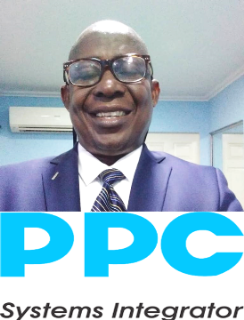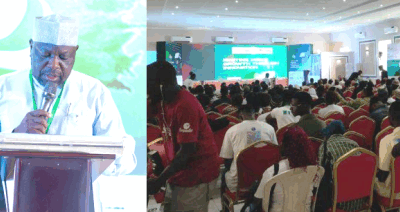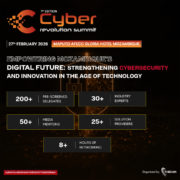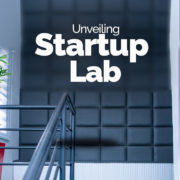In an exclusive interview with IT Edge News, Engr. Patrick Ede PhD, Director of Operations at PPC Limited, emphasizes the crucial role of system integration in driving business growth and innovation. He highlights the importance of companies continuously leveraging system integration to develop new services and solutions that enable them to stay ahead of the competition. Ede also stresses that compliance is a critical foundation for achieving any corporate objective, and companies must prioritize it to succeed in today’s fast-paced business landscape.
How does PPC Limited ensure compliance with the regulatory frameworks governing the engineering and infrastructure sectors, particularly in ICT, Power, Healthcare, and Building Services?
I can tell you that we actually have a dedicated person whose job is to ensure compliance. He also manages our quality system. He has access to all the regulatory compliance across all the sectors we are operating whether in ICT, building infrastructure for example. For ICT, all the things as required by the NCC for instance comes under his purview. We ensure we meet whatever approval is needed from the NCC and whatever payment or professional certifications the law demands we undertake whether in the power or telecommunications sector must be met.
RELATED: PPC’s Patrick Ede lauds growing adoption of EDMS to drive efficiency
The power sector regulations require a lot of these certifications and these certifications require regular renewal. Many are even annual. Your operational licenses may require annual license renewal while some may be done after specific years. We have a dedicated staff handling issues relating to regulations and the regulatory authority.
That is to say regulatory compliance is one of the key cornerstones in your daily operation at PPC?
Every sector has some regulatory licensing and we are duty bound to comply as a responsible organisation. The person in charge has a database of all those compliance issues on his dashboard. He knows what is applicable within a year or in 10 years – that’s a decade. Under the Council for the Regulation of Engineering in Nigeria (COREN), there are set rules requiring adherence. COREN has the stipulated requirement for staffing and qualifications of each engineering staff to have a corporate registration. COREN states the minimum number of staff that must be COREN-registered to be fit to do a particular kind of engineering job. In fact, a senior manager for special project manages all the regulatory compliance related issues.
How does PPC Limited integrate technological innovation into its engineering solutions across its diverse service areas and are there recent tech innovations implemented by PPC Limited?
Integration of technological innovation is at the core of all the solutions of the PPC whether engineering, healthcare, power, building and other sectors. We have a department and a general manager for systems engineering. In fact, the idea is that every system must embody a system integrator in order for you to be on top of your game. We have a systems engineer who is a general manager and he has quite a lot of senior managers below him.
Each of them is assigned a specific role. They have structure, structural engineers who are looking at the structure because if you are going to do some building, and it’s a turnkey project that requires some structural issues, you must have that basis for integration that requires proficiency from the structural, mechanical, ICT, and other specialists. Then we have people in healthcare.
The migration from traditional to emerging trends like AI, Blockchain is impacting on new services, new products new applications all across sectors including the medical field. We have an ICT solution that’s going to be a blast in the medical field.
So system engineering looks at innovation and looks at new things; looks at what applications are coming into focus. It looks at innovative ways and as a system integrator you have to be on top because you need to look at the new system to provide current and updated solutions to your customers. Technology changes, you need to provide up to date solutions. This applies across all the departments devoted to engineering solutions across all the verticals we are operating including the transport division. It may interest you to know that we worked on the Red Line and the Blue Line in Lagos in 2009. We were one of the people who worked on the telecoms aspect of those tracks. We stayed on that job from 2012 to 2017 reviewing some of those deployments.
In ICT, for example, you’re talking about AI, IoT and all that. We have people who are looking at what applications are evolving and what impact they could cause. What for example will AI do? What change is it going to bring? And then how are we going to key into that to provide solutions to the customer. What are some innovative things in the lift system that manages the lift in buildings, and other building services? What are the new processes to control the temperature of your building, and all that. People are working every day in our system engineering department to get the latest, the updated and then innovate on how to apply these solutions for our customers in business.
There’s a lot of integrations happening inside PPC that we don’t even know about.
A lot is happening in PPC about system integration and our system integration is looking forward. If you look at what you recently heard about eCMR, an electronic version of the consignment note considered indispensable for organizing transport in Europe, which is a larger framework in electronic document management system (eDMS) that the Nigerian government is talking about. Five years ago, we started working on eDMS, which defines the digital record system. We had worked on it and prepared some solutions five years ago ahead of today in preparation of this moment. We have certified personnel already working on eCMR even for some of the ministries already.
How does the PPC foster a culture of continuous learning and professional development among its employees to ensure the company remains competitive in their different respective fields of engineering and infrastructure sectors?
We have an engineering development section. So engineering is like a research division, research in the sense that they look at what is coming in new. They look at where we’re going. We have a training programme for engineers within our system apart from certifications because if you look at the product, you need certified professionals to manage it. Cisco requires a certified team. If you look at even a lift engineering process, your need certified professionals. Healthcare requires certified people to manage or service healthcare equipment or different healthcare products.
ICT requires all manner of certifications whether for Cisco, for microwave radios, for fiber cables, or terminations. Training is continuous. So every week in PPC, the engineering department provides training. They also do overviews for our sales team. They listen to the sales technical training to understand the product they’re going to take into the market. They also go for overseas training, special training for special equipment, which we are going to integrate with. System engineering provides training across the company.
What is the company’s projection for growth over the next five years?
The last time we had to look at these things. You know things are changing so fast. The transition is constant. One time, it was IT, then ICT or IDT whichever way you call it now; information digital technology. The migration from traditional to emerging trends like AI, Blockchain is impacting on new services, new products new applications all across sectors including the medical field. We have an ICT solution that’s going to be a blast in the medical field. A technological thing by the ICT team but that is going to radically alter medical services or medical access.
A lot is happening in terms of energy management systems too so within the next five years, we will be very active in major sectors including the transport industry, in transport we will be managing some things there using ICT and telecommunication and then in the same way we’ll be in power managing power and in medicals too. We will be at the frontline for some of the things we’re going to be launching to bring new services or improved consumers’ experience of the ones still existing.





























